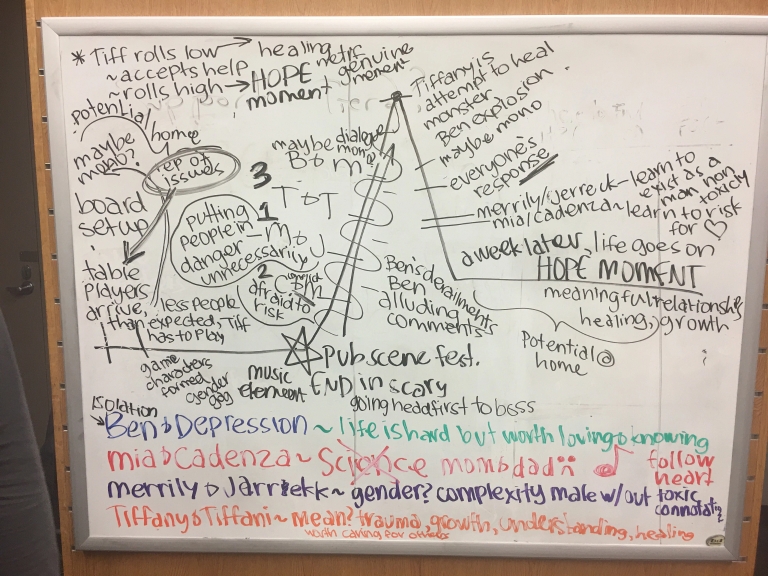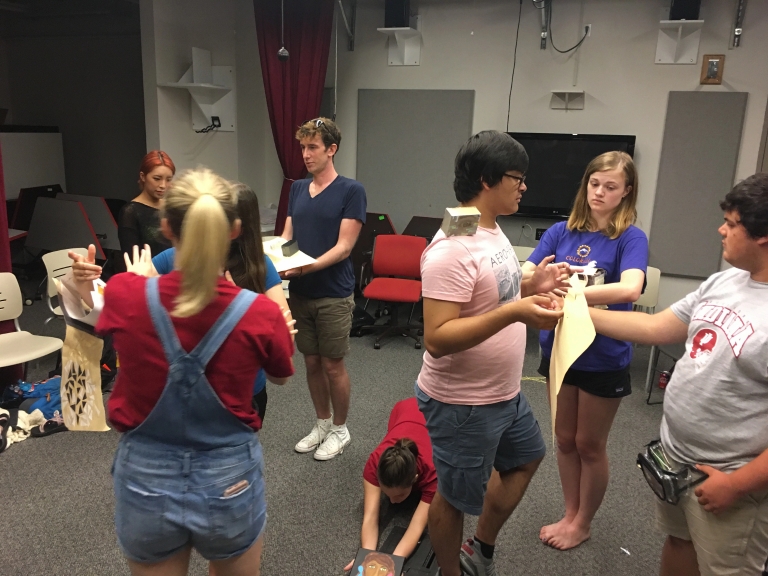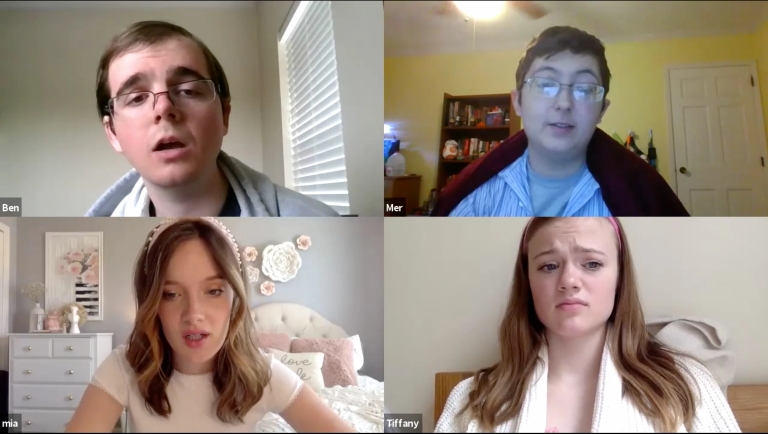A group of talented Indiana University Bloomington students spent over a year planning a suicide-prevention-themed play that they transformed into a Zoom film once the pandemic struck.
The film is now complete and will have an official debut later this year.
Gus Weltsek, an assistant professor in the IU School of Education in Bloomington, assigned the project in his classes, asking students to create a meaningful play of their choosing.
“The students needed to know that this was about them,” Weltsek said. “This was about their space, so whatever topic we took, it wasn’t just about giving a message to an audience, but that their journey was going to be a discovery of exploration and healing.”
Weltsek taught two classes, one in fall 2019 and one in spring 2020, where his students created the short film “Nat 20 to Heal,” which centering on a character experiencing suicidal thoughts.

The title is based off of the role-playing game Dungeons and Dragons.
“It’s a roll that you have to get in order to get the highest attack points or healing points,” Weltsek said about the title.
The fall class was Z-305 Theatre for Young Audiences, and the spring class was a continuation of the first one, called Z-402 Youth Theatre Tour. Both were brand new classes, Weltsek said.
Last fall, the class of secondary theater education students started brainstorming what kind of play they wanted to do. In the spring, they started planning the production aspects.
Secondary English and theater education major Elaine Clarke was one of the students who helped create the play from start to finish.
Clarke, who is now a sophomore, said she and her classmates got their idea to pursue a suicide awareness theme after visiting the Academy of Science and Entrepreneurship in Bloomington and asking the students what they would want to see in a production.
“They were the ones who were like, ‘We want to know about real things because we’re in high school, and we’re adults, and we want to know about mental health and how to figure out who you are as a person,’” Clarke said.

And so, it began. After the brainstorming and planning took place in Weltsek’s fall class, spring semester arrived, along with new students like now-senior Connor Starks.
“Everybody had already sort of done all the research,” Starks said. “I showed up in time to actually write it and put the whole thing together.”
While the students were adding finishing touches to the production, the pandemic hit. Weltsek said they thought about dropping the project, because how could a theater class perform during a pandemic?
“However, because the process was about us, it had become a space for us to heal and to think through,” Weltsek said. “The students all decided, ‘No, let’s just continue. We’ll just adapt the story to add the context of being in isolation and being in quarantine.”
From then on, production was transformed from a play to a film shot through Zoom. The students felt so passionate about the film that they worked on it outside of class, putting in about 10 hours a week, Weltsek said. The students even continued working on it through the summer.

“I think we came up with something that works really nicely,” Weltsek said. “We tried to film individual pieces with people pretending to talk to people in each other’s spaces. We used the idea of quarantine.”
The final product is 45 minutes long and shot all on Zoom. Although it is ready for viewership, it doesn’t have an official debut date just yet.
“I hope it’s really powerful because the message is you can heal,” Weltsek said. “You can heal; you can live.”
Starks said the project-based class was a place where they could talk about mental health. Clarke said it opens doors for conversations that people normally don’t talk about.
“It lit a fire under us,” Clarke said. “We were all very ready to go and sort of build on this and make it the best that we thought we could.”

